How Much Should A German Shepherd Puppy Eat

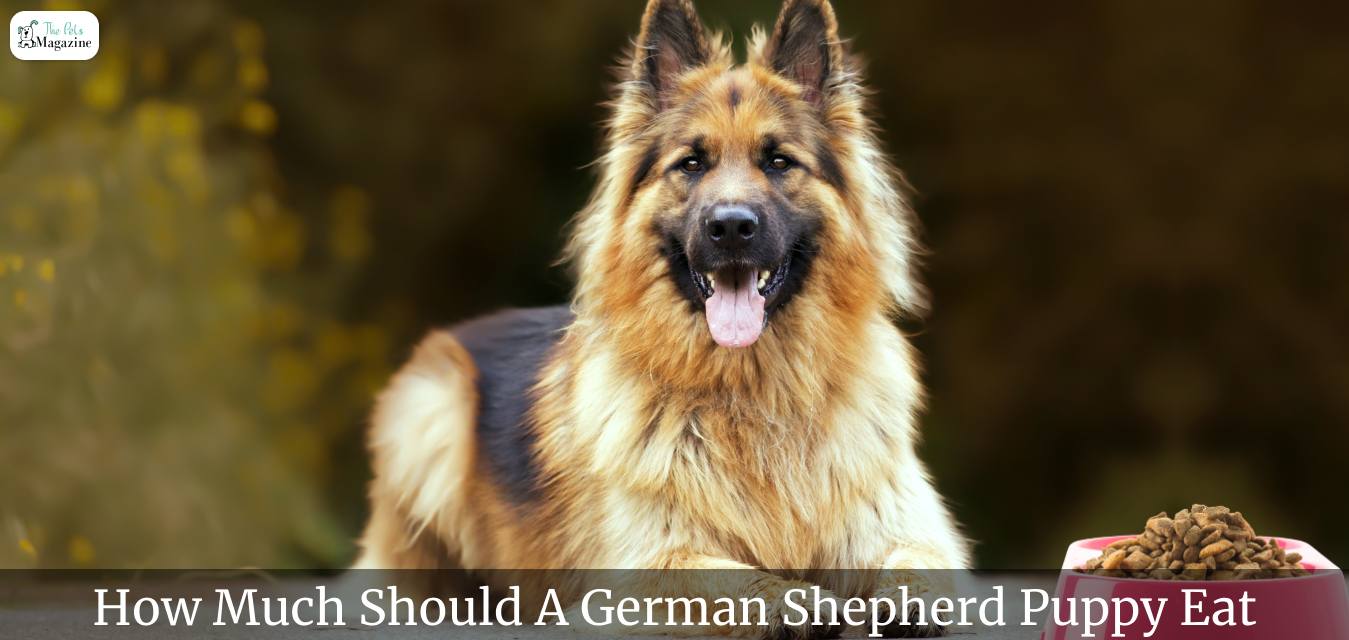
When you bring a new german shepherd puppy into your home, how do you prepare? It is really a tough question to answer. However, knowing how much a german shepherd puppy eats will definitely make things easier for you.
The difficult part of having a growing german shepherd pup is that their diet changes every week. Especially when they are in the first twenty weeks. You will notice that the quantity of food they eat keeps on changing every two weeks.
You will see major changes when your German Shepherd hits 16 weeks. Their food intake is approximately increased by four cups, which is equivalent to 1600 calories.
If you are not well versed on the german shepherd diet or this new german shepherd puppy is a first for you, you will have a hard time feeding your puppy.
We understand the difficulties the new German Shepherd owner faces. And for the exact same reason, we are here. This article will take you through the guide – How much should a German Shepherd puppy eat.
How Much Should A German Shepherd Puppy Eat: Week-By-Week Basis

You must understand that a puppy grows faster than a normal dog. You will be able to tell the difference in their size as every week passes. That being said, their diet also changes.
Here we have prepared a list of diet plans for How Much Should A German Shepherd Puppy Eat.
Week 1 & Week 2:
The first 2 weeks of a German Shepherd puppy, they are reliant entirely on their mother’s milk. During the first two weeks after their birth, the pups will stay by their mother’s side and will not stray away.
While there are one or two puppies, it is easy to ensure they are getting enough milk. However, if there is a larger litter, ensure that every puppy gets enough milk and grows well.
Week 3:
When your German Shepherd becomes three weeks old, he will become a little perkier than the ward a week before. However, you will find them taking frequent naps. You should let the puppy have his mother’s milk. He is still not prepared to wean at this point.
Week 4:
Your four-week-old German Shepherd will now be able to walk properly and will show interest in all the things they see around them. This time you can introduce them to a little amount of puppy food. When you do so, ensure that ¾ is water and ¼ is in the puppy food.
They are still very small and have small stomachs. Giving them too much might make them seek.
Week 5:
A five-week German shepherd might be able to eat the kibble puppy food that you had introduced him to last week. You will find that he is showing interest in eating puppy food.
Despite their interest, you mustn’t force them to eat too much of the Kimble mixture. After all, they are still dependent on their mother’s milk to complete their diet.
Week 6:
Week 6 is the time to wean him off from his mother’s milk and put him on a complete puppy food diet. You can do that by changing the water – puppy food ratio. This time goes with a 50-50 mix.
Week 7:
When a German shepherd puppy becomes 7 weeks old. He should be eating puppy food without any water. Offer puppy food several times a day and take them out for a walk or game after their meal.
Week 8:
An 8 week German Shepherd Puppy needs to be completely weaned from his mother’s milk and fed only puppies food. Don’t be surprised if your puppy is unable to complete their food. Every puppy is different, and so does its appetite. To ensure you are not wasting the food, feed them 2 cups of puppy food daily.
Week 9:
Week 9 is the time when the puppy is handed down to the new owners. If you are changing your puppy’s home and changing their food. It is important to ensure that you are taking your time while doing so. You should still feed him three meals a day of equal portions.
Week 10:
At this point, your puppy will start getting really hungry. However, you must not rush things. You should maintain giving three meals a day to have consistency. The two cups that we recommended in week 8 might not be enough to curb your puppy’s appetite. You can increase the amount by a little.
Week 11:
Once your German Shepherd crosses week 10, he will show an exponential growth spurt. You will find that their appetite has changed, the amount of food they eat has increased, and they will also put other things in their mouth which are not meant to be. So, be sure to keep an eye on them.
Week 12:
German Shepherds show exponential growth spurt when they are in between 3 – 6 months. You can feed them a larger portion of the meal until they taper the growth. Outside the size of the puppy, you also need to consider that your German Shepherd Puppy’s brain is also growing and developing.
Week 13:
By the time your German Shepherd reaches week 13, you will find that he is full of energy and life. He will be busy all day exploring everything and most likely eat his food with great enthusiasm. However, while you are feeding your puppy, ensure that they are not eating too much. German Shepherds are athletic and slip by nature. You need to keep track of what they eat and how much they eat.
Week 14:
At the age of 14 weeks, your puppy will now be losing all their baby teeth in place of adult teeth. This means that they will be able to chew on everything. After week 14 has passed, you will be able to feel everything about him without any problem.
What Nutrients A German Shepherd Puppy Needs?
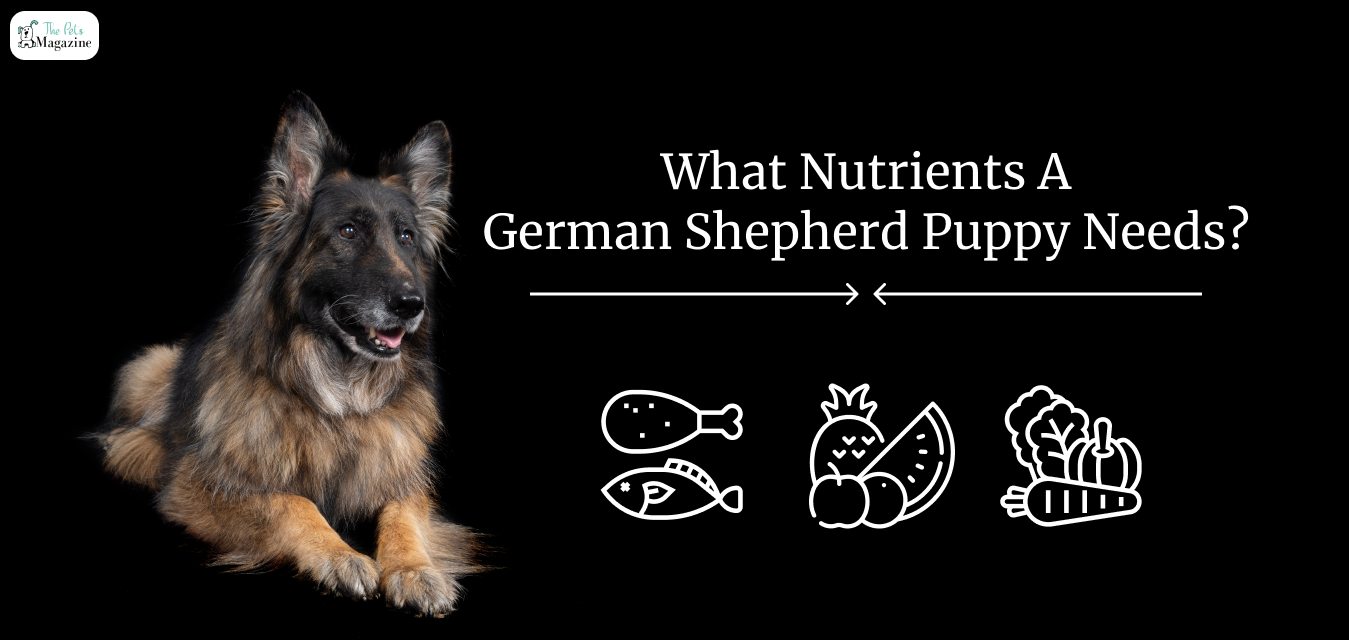
A German Shepherd puppy needs a protein-rich diet to grow well and sustain energy to live an active lifestyle.
For instance, if we only cover the protein part, your puppy needs at least 22% of the protein in their diet. High-quality protein sources include Fish, Chicken, and Beef.
Once the protein section is all covered up, here are the rest of the nutrients they need.
- 5% Fat.
- 5%-8% carbs.
- Rest green veggies.
In addition:
- Minerals.
- Vitamins.
- Antioxidants.
- Water.
- Omega fatty acids.
It is important that you are feeding your german shepherd puppy green leaves to ensure their balanced diet.
How To Pick The Best Dog Food For A German Shepherd Puppy?
Choosing the right food for your German Shepherd puppy is crucial for their healthy development. Here’s a guide to help you pick the best:
Nutritional Needs:
- High Protein: Growing puppies need a lot of protein (22% or more) for muscle and bone development. Look for meat sources like chicken, lamb, or fish listed as the first few ingredients.
- Healthy Fats: Omega-3 and Omega-6 fatty acids are essential for healthy skin, coat, and cognitive development. Fish oil, flaxseed, and chicken fat are good sources.
- Balanced Diet: Ensure all essential nutrients are present, including carbohydrates for energy, vitamins, and minerals.
Food Options:
- Puppy-Specific Formula: These formulas are specially designed for growing puppies and meet their specific nutritional needs.
- Large Breed Puppy Food: German Shepherds are large dogs, so choose a food formulated for large breed puppies, considering their growth rate and potential joint issues.
- Read the Label: Look for whole food ingredients and avoid foods with fillers, artificial colors, or flavors.
- Brand Reputation: Choose reputable dog food brands known for quality ingredients and research.
Additional Considerations:
- Activity Level: Very active puppies may need more calories than less active ones.
- Potential Allergies: If you suspect allergies, discuss food options with your veterinarian and consider limited ingredient diets.
- Veterinarian Guidance: Always consult your veterinarian for personalized recommendations based on your puppy’s specific needs and health.
Here Are Some Tips For Feeding Your German Shepherd Puppy:
Feeding Schedule
Feed your puppy according to the recommended serving sizes on the food packaging, typically divided into 3-4 meals per day. Provide access to fresh, clean water at all times. Also stick to a consistent feeding schedule and food brand to avoid digestive upset. Regularly weigh your puppy and adjust feeding portions as needed to maintain a healthy weight.
By following these guidelines and consulting your veterinarian, you can provide your German Shepherd puppy with the best possible nutrition for a healthy and happy life.
How do I transition my puppy to adult dog food?
Transitioning your German Shepherd puppy to adult dog food is an important step in their growth process. Here’s a step-by-step guide to help you make the transition smoothly:
- Timing: Begin the transition when your puppy is about 12 to 15 months old. Large breeds like German Shepherds may benefit from staying on puppy food a bit longer than smaller breeds, as they take longer to reach full maturity.
- Gradual Change: Start mixing the adult food with the puppy food. Gradually increase the amount of adult food over the course of a week.
- Days 1-2: Mix 75% puppy food with 25% adult food.
- Days 3-4: Balance the mix to 50% puppy food and 50% adult food.
- Days 5-6: Mix 25% puppy food with 75% adult food.
- Day 7: Completely switch to 100% adult food.
- Monitor Your Puppy: Keep an eye on your puppy’s reaction to the new food. If they experience any digestive upset, slow down the transition process.
Feeding Your German Shepherd Puppy Raw Food
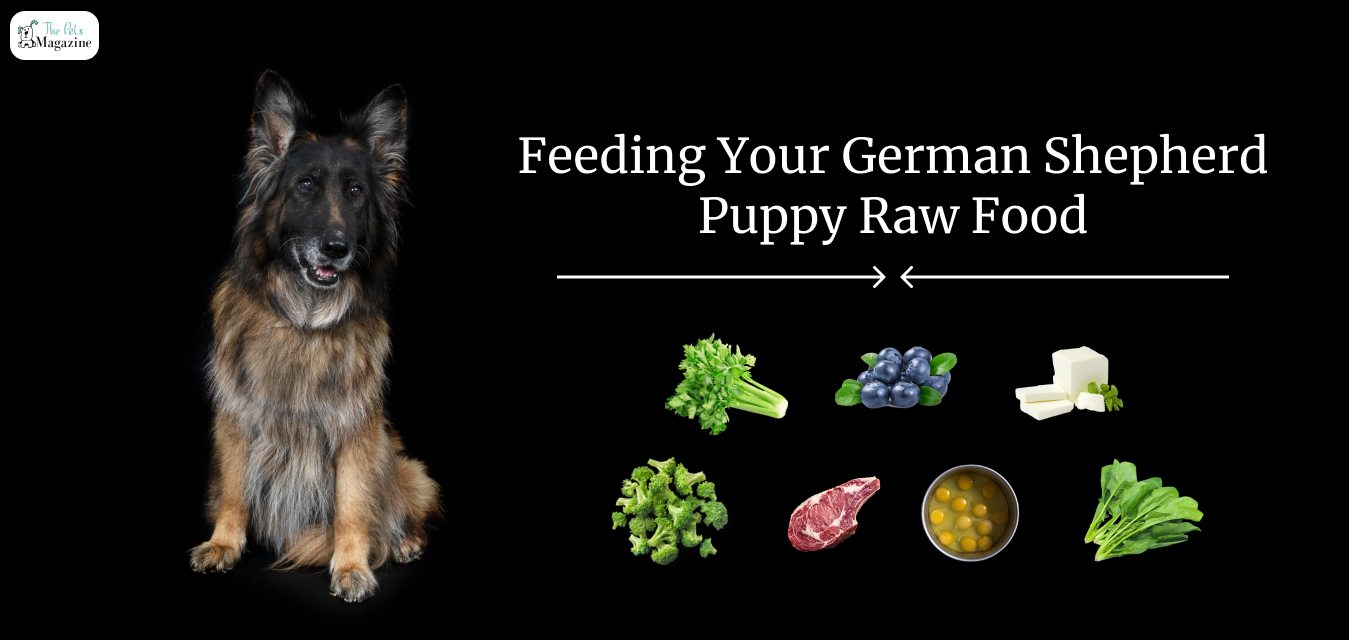
Feeding raw Food to your German Shepherd puppy is that you are giving them wholesome food without any fillers or preservatives.
Your puppy is a canine, which means feeding them RAW food will do more good than feeding them cooked meals. In fact, it will also help prevent inflammatory bowel diseases.
However, while you are feeding your puppy RAW food, you need to be aware of the pathogens. Pathogens infect raw food. If not treated p[roperly, it can harm your puppy.
German Shepherd Feeding Guide For Seniors
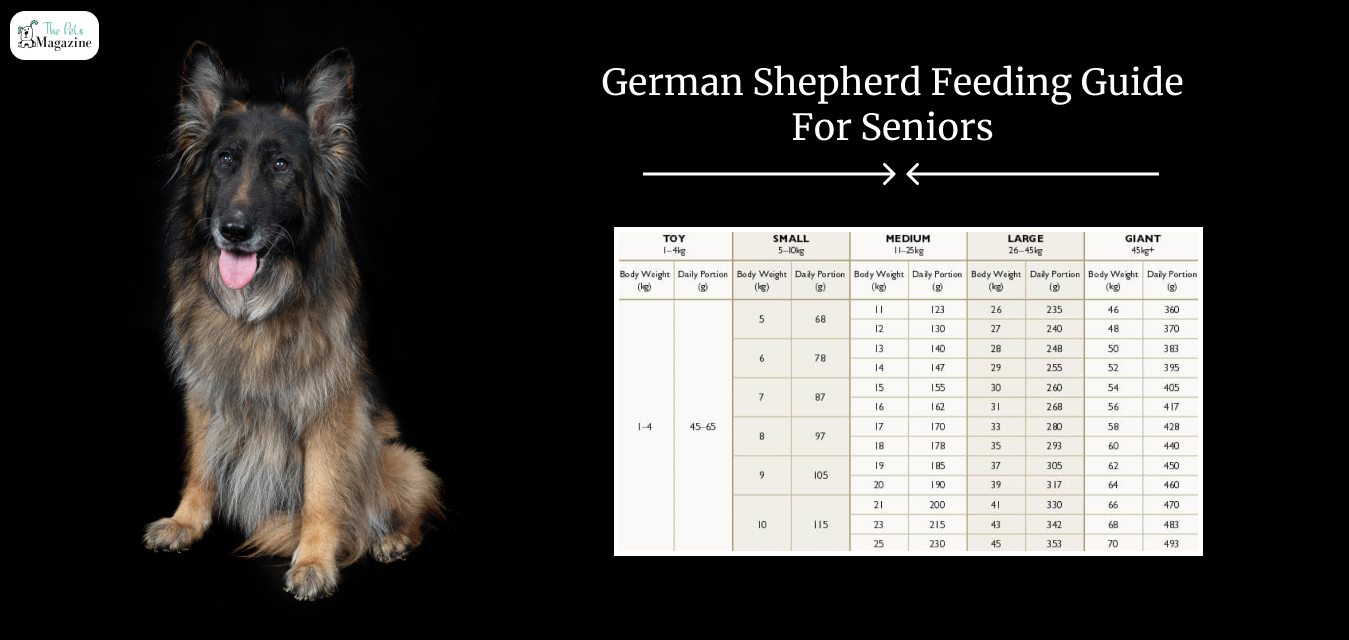
Now we know – how much should a German Shepherd puppy eat. But, what about a senior German Shepherd? Once your German Shepherd reaches the final stage of their life cycle, their diet needs to be balanced accordingly. Older German Shepherds have lower energy needs.
Just like old humans having less physical activity, German Shepherd becomes less physically active. In fact, they even move slower. As their physical activity decreases, they need fewer calories to burn.
Once your German Shepherd becomes a senior, fill their diet with fibers instead of feeding them meat. This helps their slow metabolism digest their food easily.
FAQs (Frequently Asked Questions)
Q1. What Human Food Can A German Shepherd Puppy Eat?
It can be boring for your German Shepherd puppy to eat the same thing three times a day for 365 days. To make things interesting for your puppy, you can give them some treats from time to time.
You would be surprised to know that there are a few human foods that your German Shepherd can eat. Here is a small list of human food you can feed your puppy.
- Fish.
- Eggs.
- Turkey.
- Chicken.
- Beef.
These are great sources of protein for your canine. It will help your puppy grow healthy with lean muscles.
To add fiber, you can feed:
- Apples.
- Strawberries.
- Banana.
- Coconut.
- Mangoes.
- And other fibrous fruits.
And for vegetables, you can do with:
- Bell Pepper.
- Broccoli.
- Green peas.
- Cucumber.
- Carrots.
Q2. How Much Protein Should A German Shepherd Puppy Eat?
A German Shepherd puppy needs a protein-rich diet to grow well and sustain energy to live an active lifestyle.
For instance, if we only cover the protein part, your puppy needs at least 22% of the protein in their diet. High-quality protein sources include Fish, Chicken, and Beef.
Q3. What Human Foods Are Dangerous For German Shepherd Puppies?
Though we just talked about how your German Shepherd enjoys eating human food. There are some human foods that can be harmful to them.
For instance, Chocolates are one of the delicacies for humans but can be really dangerous for German Shepherd puppies. Chocolate contains Theobromine toxin, which is dangerous for the puppy’s health.
Avocado, one of the nutrients in fruit for humans, is another toxic food for German Shepherd puppies. It contains Persin, which causes serious gastrointestinal issues for the puppies.
Other foods that you need to avoid feeding your German Shepherd Puppy:
- Raisin.
- Fruit Pits.
- Macadamia nuts.
- Dairy products.
- Grapes.
- Onions.
Q4. Canned Vs. Dry Food For German Shepherd
While talking about How Much Should A German Shepherd Puppy Eat or what they should eat, talk about Canned food vs. dry food always comes up.
Just like how we are attracted towards junk food, German Shepherd puppies really love the sweet smell of Canned food. However, feeding your German Shepherd with excessive canned food can be harmful. Due to the excessive wet content, it can raise dental problems.
On the other hand, dry food has no such issues. In fact, it is better for digestion and has comparatively more protein than canned food.
Q5. What To Do If My Puppy Is Still Hungry?
You might get confused about how much should a German Shepherd puppy eat even after feeding them three times a day. In that case, you just need to increase the frequency of meals. Just ensure that you are decreasing the portion of the meal.
Feeding them frequently with a decreased portion ensures that German Shepherds’ digestion is functioning properly.
Final Thoughts
You can find a ton of German Shepherd Feeding guides online (Just like this one). Yes, every one of the guides holds merits, but those are created for a particular shape of German Shepherd.
Unfortunately, not all German Shepherd Puppies are made the same. They hold their differences. The differences are better known to their veterinarian. Hence, no matter how thorough research you do online, getting personalized recommendations from your veterinarian is worth your time.
Your veterinarians will understand your German Shepherd’s needs and will give you personalized solutions. It is most likely that you will get the option and suggestion to make small adjustments if needed.






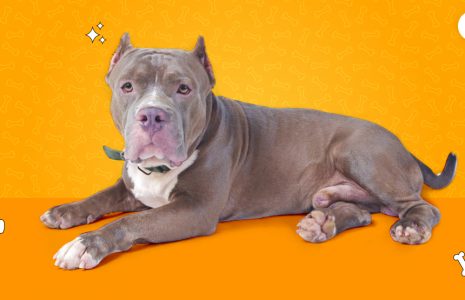


Leave A Comment